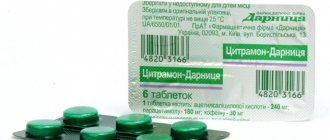Hello, dear readers!
During pregnancy, many different changes occur in a woman’s body, some affect the emotional background, others affect the physical state. The latter are especially dangerous, as they can not only cause discomfort, but also pose a threat to the health of the expectant mother and baby.
One of the symptoms of pregnancy, which requires separate study and special attention, is high blood pressure, and in most cases, arterial hypertension is observed in pregnant women only from the 20th week of pregnancy.
And yet it happens that high blood pressure torments a pregnant woman throughout the entire period of bearing a baby, therefore, according to doctors, the most effective and safe remedy for this disease is Dopegit instructions for use during pregnancy which will help you understand what the tablets are and what components are included in them composition, how to take the medicine correctly, in which cases it is better to look for analogues and what successful replacements are available on pharmacy shelves.
Dopegit tablets: main characteristics and properties
Pharmacies offer a large selection of drugs to combat high blood pressure. And yet, choosing a reliable remedy that can be used during pregnancy can be extremely difficult.
Reviews from doctors and consumers confirm the safety of the drug Dopegit, which is prescribed in the case of diagnosing arterial hypertension in pregnant women. An increase in blood pressure is undesirable at any stage, but this condition is considered especially dangerous in the first trimester.
In the early stages, the fetus must receive sufficient nutrients and oxygen. With hypertension, the blood supply to the placenta deteriorates, which negatively affects the development of the fetus.
To normalize blood pressure, doctors prescribe Dopegit tablets 250 mg No. 50, which help:
- relax and reduce vascular tone;
- reduce sensitivity to dopanine, an element that affects blood pressure;
- suppress the synthesis of enzymes that activate the hormones norepinephrine and serotonin, which directly affect the increase in blood pressure.
The drug does not affect kidney function and does not increase heart rate, which is especially important in the treatment of pregnant women.
Important to remember!!!
You cannot take pills without the express permission of your doctor.
Despite the fact that the instructions do not contain a ban on taking the medicine during pregnancy, it should be understood that the doctor prescribes its dosage based on the individual characteristics of the patient’s body.
What kind of remedy
The drug, released to lower blood pressure, is sold strictly according to a doctor's prescription. During pregnancy in the 1st trimester, Dopegit is approved for expectant mothers. If you do not lower blood pressure, the condition of the patient’s blood vessels will negatively affect the fetus.
Dopegit during pregnancy in the 2nd and 3rd trimester does not have a negative effect on the formation of the fetus. But you should use the pills in the 3rd trimester with caution, weighing all the risks and taking into account the therapeutic benefits for the pregnant woman.
Studies of the drug showed that in the 3rd trimester the woman’s condition was much better than that of those who did not take the drug.
It is noted that the active component, methyldopa, darkens the urine. The risk of hypertension in pregnant women increases with obesity, polycystic ovary syndrome, and diabetes mellitus. You should not ignore blood pressure, as the development of pathology, placental abruption and fetal death increases.
It is necessary to take medications in order to reduce the risk of preeclampsia, the symptoms of which are swelling, weight gain, and protein in the urine. More dangerous signs of pathology for pregnant women are headaches and vision problems (flying spots).
In a more complex version, eclampsia develops - loss of consciousness, convulsions.
External and internal features of the medicine: composition, release form, cost
The manufacturer of the drug is Hungarian. Dopegit 250 mg is available in tablet form, packaged in translucent tinted glass bottles. One jar contains 50 tablets.
The forum where pregnant women communicate reveals a lot of useful information about the medicine, including information about what its cost depends on. The price varies between 170-240 rubles per package and depends on the form of the drug, the region, and the specific pricing policy of the pharmacy.
The active component of the drug is methyldopa sesquihydrate in a volume of 250 mg, supplemented with:
- magnesium stearate;
- talc;
- corn starch;
- cellulose ethyl ether;
- octadecanoic acid;
- carboxymethylcellulose.
In the treatment of high blood pressure, drugs in the form of Dopegit cream, gel or ointment will be ineffective. The medicine exists on pharmacy shelves exclusively in tablet form.
Contraindications and side effects
In what cases is it not permissible to take the drug:
- acute hepatitis, liver cirrhosis;
- anemia;
- depressive states;
- tumor of the adrenal medulla;
- hypersensitivity to the components of the drug;
- acute myocardial infarction;
- children under 3 years old.
Use with caution in the following cases:
- renal failure;
- diencephalic syndrome (dysfunction or damage to a part of the brain);
- elderly patients;
- children over 3 years old.
What unpleasant symptoms may appear with long-term use of Dopegyt:
- lethargy, lethargy, drowsiness;
- weakness;
- fatigue;
- headache;
- nausea;
- dizziness;
- heart failure;
- rash, eczema;
- joint pain;
- increased fatigue;
- mental disorder;
- dry mouth;
- peripheral edema;
- fever;
- nasal congestion;
- constipation, diarrhea, bloating.
With long-term use of Dopegyt, side effects such as fatigue, lethargy, drowsiness may appear.
During pregnancy and breastfeeding, before taking any medicine, I always thought first of all about whether the medicine would harm the baby. Dopegit has a long list of side effects and the symptoms that can be caused by taking the drug are quite serious. Therefore, in no case should you self-medicate, and all questions regarding the use of medications should be resolved only with a doctor, especially in the 1st trimester of pregnancy. After all, during this period the baby’s organs are formed and taking medication, which experts strongly do not recommend taking, can cause irreparable harm to the child.
Indications for the use of Dopegit tablets: why are they prescribed to pregnant women?
Women carrying their first child are practically unfamiliar with the various nuances of pregnancy, so they are often asked at what pressure we can talk about hypertension. High blood pressure is considered to be 140/90 or higher.
If such a condition occurs, doctors are required to prescribe special medications to normalize it. The safest of them, which is allowed to be used both in the early stages and after the 32nd week of a 9-month period, is Dopegit.
It is prescribed for the purpose of:
- reduce and normalize pressure in the arteries;
- suppress nausea;
- calm down;
- reduce dizziness and headaches;
- reduce heart rate.
For pregnant women who are worried about whether they can take pills for chronic arterial hypertension, the answer will be positive. The medicine is indicated for all types of the disease and allows you to normalize blood pressure in the case of a chronic condition, gestational pathology and severe forms of preeclampsia.
Side effects
An allergic reaction may occur in the form of a rash on the skin. When used during pregnancy, Dopegit may cause side effects:
- in the cardiovascular system (peripheral edema, bradycardia, orthostatic hypertension;
- central nervous system - headache, dizziness, weakness, drowsiness, in rare cases, hallucinations, Parkinson's syndrome;
- from the gastrointestinal tract - nausea, vomiting, dryness, diarrhea, constipation, pancreatitis, changes in liver function, jaundice, colitis;
- from the respiratory system - swelling of the nasal passages;
- from the endocrine system (decreased libido);
- from the hematopoietic system (leukopenia, thrombocytopenia, autoimmune hemolytic anemia).
Pregnant women may experience uterine hypertonicity, and therefore there is a risk of giving birth prematurely. In very rare cases, fever, myalgia, arthralgia, and lupus syndrome occur.
The occurrence of side effects requires urgent medical consultation and stopping the drug. The gynecologist will provide an analogue to lower blood pressure.
Recommendations for use: dosage, time of administration and duration of action
Before starting treatment, you should once again study the instructions for use yourself. With the help of the information contained in it, you can find out that the medicine is intended exclusively for oral administration, and it should be taken either before meals or immediately after meals.
The instructions also indicate how long the drug takes to work. The effect occurs 3-7 hours after taking the pill, and its effect lasts from 12 hours to a day, which depends on the characteristics of the female body.
The dosage of the medication should not exceed 2 grams per day, which are contained in 8 tablets. Doctors prescribe 1 pill per day for the first days of treatment, after which their number may increase, but the main thing is that it does not exceed the permissible daily allowance. Women with breastfeeding should take the pills especially carefully.
How to apply it correctly?
Before you start taking the drug, you need to read the instructions. Recommended:
- take the drug orally with water;
- taking the drug does not depend on the diet; you can take the tablet both before and after meals;
- You should not expect an immediate result; the maximum effect from using the drug can be seen 3-5 hours after administration;
- the effect lasts about a day;
- the number of doses depends on the prescribed dose of the drug; tablets are taken 1-3 times a day. The larger the daily dose of the drug, the greater the number of doses you need to distribute the drug.
Dosage
When prescribing this drug, the dosage is selected strictly individually. In the process of selecting an effective therapeutic dose, it is necessary to monitor changes in pressure indicators.
The instructions recommend starting treatment with one tablet per day. With each subsequent day you need to add one tablet until normal blood pressure is achieved. At the same time, you need to remember that you cannot take more than eight Dopegit tablets in one day.
Advice! If a pregnant woman takes the highest possible dose of Dopegyt, but her blood pressure remains consistently high, then she should stop taking this drug and, with the help of a doctor, choose another antihypertensive drug.
After the blood pressure returns to normal, the number of tablets will need to be gradually reduced. For maintenance therapy, it is enough to take one tablet every 1-2 days.
Features of use during pregnancy
In the initial trimester, the drug is prescribed to the expectant mother only if there are serious indications. There are no studies yet that would confirm the safety of the drug when taken for up to 12 weeks. Therefore, it is not worth the risk.
In the second and third trimester, the drug can be taken without fear. But, of course, only as prescribed by a doctor. When used for a period of more than 13 weeks, there is no fear that the drug will exert negative pressure on the fetus. But the medicine is not recommended for use when breastfeeding, as it can affect the composition of milk.
Analogues of the drug: what can replace Dopegit?
If Dopegit does not help cope with high blood pressure or is not suitable for some reason, you can try replacing it with another drug. Treatment with a new drug is possible only after consultation with a specialist.
The most successful analogues are:
- Clonidine;
- Nifedipine;
- Labetalol;
- Magnesium sulfate.
Young mothers should take care of both the baby and their own health and beauty. Elancil cream for the prevention of stretch marks, 150 ml in volume, which has a regenerating effect, will help quickly restore the skin, restore its elasticity and smoothness after childbirth.
Dopegit during pregnancy
In the second trimester, the pressure began to rise to 140/100. The gynecologist referred me to a cardiologist. She prescribed (after ECG, ECHO and SMD) dopegit 1t*3r.d. But I forgot to ask if the pressure is normal 120/80, should I drink it or take breaks so as not to lower it even further? True, yesterday the pressure jumped to 150/110. I was terribly scared and almost went to the hospital. But today I’m like an astronaut. And now I’m sitting thinking whether to drink or not to drink?
| 16.12.11 12:09 |
| In the second trimester, the pressure began to rise to 140/100. The gynecologist referred me to a cardiologist. She prescribed (after ECG, ECHO and SMD) dopegit 1t*3r.d. But I forgot to ask if the pressure is normal 120/80, should I drink it or take breaks so as not to lower it even further? True, yesterday the pressure jumped to 150/110. I was terribly scared and almost went to the hospital. But today I’m like an astronaut. And now I’m sitting thinking whether to drink or not to drink? | |
| |
| 16.12.11 15:28 |
| Is there a way to get used to it? And about the fact that after giving birth you won’t have to just sit on it all the time? | |
| |
| Did you have problems with blood pressure during B, or did you have them before B? For many, blood pressure rises during B, and then everything goes away. Accordingly, you don’t need to drink anything afterwards. | |
| 19.12.11 15:56 |
| Before pregnancy there were problems (about a year ago they started from cervical osteochondrosis). But after three courses of treatment everything went away and the pressure no longer bothered me. In the first trimester I suffered from low blood pressure, but now it’s 140/100. Moreover, at the last ultrasound at 23 weeks they saw a bad placenta and a small fetus. I got nervous and my blood pressure went up! Now I've calmed down a little. If you don’t get nervous, your blood pressure doesn’t increase, but I don’t live in a vacuum and I take everything VERY close to my heart. Therefore, I finally decided to drink dopegit, but for now only in the morning and evening. Plus, the doctor also prescribed chimes (in the first trimester I walked around like a sleepy fly - I think it’s from him). Now I’m drinking chimes again (I can fall asleep sitting at my desk!!) HORROR!!! Plus, the heart rate rises above 100 beats (I think with chimes or dopigit - I don’t know yet...) And I don’t see the doctor until Wednesday. Which medicine should I quit? By the way, the pressure even drops to 116/70!!! |
It’s such a shame that I trusted the doctors, but it turned out even worse. So I’m worried about the baby, I filled him with extra pills
:mir: Author, I sympathize with you, but next time you will be more careful. At first B. I also trusted the doctor with everything, in the end I had constipation, headaches, nausea, and all this was because of the medications. About dopegyt, I was also prescribed it at this hospital, although my blood pressure is normal, but my pulse is always about 100 beats. I didn’t drink anything, I don’t drink anything at all that the doctors prescribe for me, not even vitamins. Moreover, all the analyzes are wonderful. Another case, the doctor didn’t really like the smear - she prescribed some suppositories and some pills, and also told her to undergo treatment together with her husband. Again, I didn’t treat anything. As a result, the other day I had a smear “after treatment” and, strangely enough, it turned out to be good. How cool and fun you have here. Can I go already? Ekaterinburg I want to become a mother :) well, in general, when visiting a therapist, dopegit was prescribed only when the blood pressure increased to 130/80, if it was less, then don’t drink... I came to the gynecologist, she yelled at me, like who am I listening to and why did I stop drinking these pills?! And after I answered about the therapist’s diagnosis, I was shocked. The gynecologist said: “What does the therapist know about pregnancy?! she deals with general issues! You need to listen to me! I’m pregnant and I know better.” %) And after that I was in a stupor: should I take pills or not?! and since due to family circumstances my blood pressure became high at home, I started drinking. P/S now everything is back to normal at home, but I messed up my blood pressure, now my blood pressure is jumping from 103/66 to 150/100 up and down, before this it was always stable Message was changed by the user 05/24/2011 at 21:41 In the shower... spring In the eyes... happiness... In the heart... love...
| Posts: 128 | I answer everyone at once. To avoid unnecessary questions, I am a cardiologist, candidate of medical sciences, with 12 years of experience. The safest treatment for hypertension during pregnancy (regardless of whether blood pressure was high before pregnancy or not) is dopegit. BUT - it is very weak and truly “ancient” and therefore is not used in routine practice, except in situations with hypertension in pregnant women. To achieve the desired effect (i.e., lowering blood pressure), you need to take dopegit 3, or preferably 4 times a day, the average dose is about 2000 mg per day (i.e. 8 tablets), the maximum is up to 4000 mg (ONLY under the supervision of a doctor !!!). It can be used throughout the WHOLE pregnancy, but in the third trimester other possibilities arise, especially since dopegyt is often not enough to achieve the required pressure (at rest it should not be higher than 135/85 mm Hg). The second drug that can be taken throughout pregnancy is clofelline. BUT: it is of central action (i.e. it affects the vasomotor center of the brain), has a bunch of side effects, is difficult to overcome addiction - therefore STRICTLY if it is impossible to cope with high blood pressure with the help of dopegite and magnesium injections, but it is difficult to imagine who can withstand 3 -4 injections of this magnesium into the butt during the entire pregnancy?!. In the third trimester, b-blockers and calcium channel blockers appear in the doctor’s arsenal, but only a doctor can prescribe them for you) and coping with blood pressure becomes easier with their help) The most important thing is that the risk for a child from high blood pressure is IMMENSIBLY higher than from taking the above drugs . So don't be afraid of anything! And. if the blood pressure is high, medications need to be taken REGULARLY, and not only when the blood pressure has increased - because high blood pressure is already affecting your baby and you cannot always measure the pressure, and therefore find out what it is - for example, at a meeting, during climbing stairs, emotional conversation, in transport, etc. — it is unrealistic to measure blood pressure, but during these periods the pressure is EXACTLY higher than at rest. The pressure must not be allowed to rise!!! |
| department |
conclusions
Women should take care of themselves and their well-being for the sake of a happy future for the child they are carrying. After reading the valuable information contained in the article, suggest reading it to your friends on social networks. By reposting the article on your wall, introduce it to other Internet users.
Thus, a large number of acquaintances, relatives and strangers will learn about useful material. Take care of yourself, read the blog, ask questions under the article, get quick answers and stay in touch! See you again in other articles, dear friends!
Sincerely, Katherine Grimova, mother of a wonderful daughter!
Table: interaction of Dopegit with other drugs
| Group of drugs | Example of drugs | Possibility of combined use with Dopegit |
| MAO inhibitors (antidepressants) | Phenelzine | Possible increased side effects characteristic of Dopegit |
| Pargilin | ||
| Diuretics | Canephron | Enhances the effect of treatment with Dopegyt |
| Phytolysin | ||
| Tricyclic antidepressants | Fluoroacyzine | Headaches, rapid heartbeat, and a decrease in the severity of the effect of treatment with Dopegit may occur. |
| Elavil | ||
| Other antihypertensive drugs | Hypothiazide | Can be used, but requires gradual withdrawal of other antihypertensive drugs previously taken |
| Verapamil | ||
| Alcohol-containing drinks, medicines | Valocordin | Strictly contraindicated, may aggravate the patient's condition |
| Corvalol | ||
| Antiparkinsonian drugs | Levodopa | Possible decrease in the effect of levodopa, increased undesirable effects on the central nervous system |
| Lithium preparations | Quilonum | Possible increased toxicity of lithium |
| Lithium carbonate | ||
| Anticoagulants | Dipaxin | The effect of anticoagulants increases, and there may be a risk of bleeding |
| Tromexane |
Analogues approved for use during pregnancy
Aldomet, Alphadopa, Dopanol are analogues that are approved for use during pregnancy (according to strict indications). All of these drugs have the main active ingredient methyldopa; the contraindications and side effects are almost the same for all.
Contraindications:
- hemolytic anemia;
- acute hepatitis;
- cirrhosis of the liver;
- liver or kidney failure;
- systemic connective tissue diseases;
- parkinsonism;
- depression;
- pheochromocytoma;
- acute myocardial infarction.
Side effects:
- drowsiness;
- lethargy;
- lethargy;
- parkinsonism;
- facial paralysis;
- spontaneous choreoathetoid movements;
- headache;
- peripheral edema;
- dry mouth;
- vomit;
- diarrhea;
- nausea;
- pancreatitis;
- allergic reactions;
- nasal congestion.
These drugs are sold in tablet form. For pregnant women, the dosage is prescribed only by a specialist; for an adult, the daily dose should not exceed 2 g.











